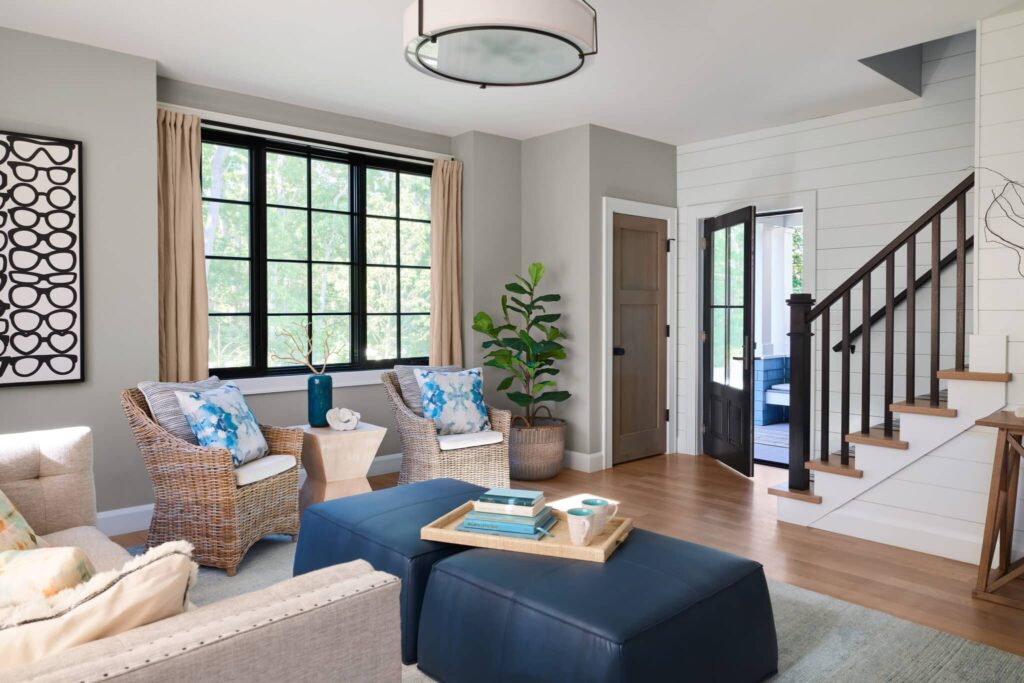When you think about creating a peaceful, quiet home environment, the first things that may come to mind are cozy furniture, soothing colors, or relaxing décor. However, one often-overlooked factor in achieving tranquility is the quality of your windows and doors. Whether you live in a noisy urban neighborhood, near a busy street, or simply want to reduce outside disturbances, soundproofing your home is an effective way to enhance comfort and improve your living experience. In this guide, we’ll explore how the right windows and doors can significantly reduce noise infiltration, giving you a quieter, more serene space to enjoy.
Understanding the Importance of Soundproofing
Before we dive into the best types of windows and doors for soundproofing, it’s important to understand why noise control matters. External noise, whether it’s traffic, construction, or the hum of the city, can have a major impact on your quality of life. Excessive noise can cause stress, disrupt sleep, and reduce overall comfort. Additionally, noise pollution has been linked to increased risks of cardiovascular disease and hearing problems. Therefore, soundproofing is not just about comfort—it’s about creating a healthier and more peaceful living space.
When considering soundproofing solutions for your home, it’s essential to address both the materials and the construction of your windows and doors. Sound travels through both air and physical surfaces, so any gaps or weaknesses in these structures can allow noise to penetrate. By selecting the right products and properly sealing your windows and doors, you can effectively block out unwanted sound and create a quieter indoor environment.
What Makes a Window or Door Soundproof?
The effectiveness of soundproof windows and doors lies in their ability to block sound transmission, which depends on a combination of factors. These include the materials used, the thickness of the glass, and the design of the frame. Soundproofing is measured in terms of sound transmission class (STC), which rates how well a building material reduces airborne sound. The higher the STC rating, the better the material is at blocking sound. Windows and doors with higher STC ratings are more effective at keeping unwanted noise out.
Another important factor is the air-tightness of the installation. Even the highest-quality windows and doors won’t perform well if there are gaps around the frames or seals. This is why professional installation is crucial to achieving the best results. Soundproof windows and doors must be properly fitted to ensure there are no air leaks or cracks that would allow noise to seep through.
Choosing the Right Soundproof Windows
The first step in enhancing your home’s soundproofing is choosing the right windows. Standard single-pane windows provide little to no soundproofing, as sound easily passes through them. To reduce noise effectively, it’s best to opt for double or triple-glazed windows. These windows consist of two or three layers of glass separated by an insulating air or gas layer. The more layers of glass you have, the more sound insulation you’ll achieve.
Double-glazed windows are a popular option for soundproofing. The air gap between the panes acts as a barrier to sound, significantly reducing noise transmission. To improve soundproofing even further, triple-glazed windows provide an additional layer of insulation. The extra glass layer and gas-filled space between the panes offer even more sound attenuation, making them an excellent choice for areas with high noise pollution.
Another consideration when selecting windows for soundproofing is the thickness of the glass. Generally, thicker glass provides better soundproofing because it is less likely to vibrate in response to sound waves. For optimal soundproofing, choose windows with varying thicknesses for each layer of glass. This variation helps disrupt sound waves, preventing them from passing through the glass. For example, you might opt for a combination of a 6mm pane and an 8mm pane of glass, which creates an additional barrier against sound.
In addition to choosing the right glass, the frame material also plays a significant role in soundproofing. Vinyl frames, for example, are known for their ability to absorb sound vibrations better than aluminum frames. Wooden frames also have sound-absorbing properties, making them another solid choice for reducing noise. Regardless of the material, the window frame should be sealed tightly to prevent sound leaks around the edges.
Investing in Soundproof Doors
Just as important as soundproof windows are your doors. Soundproof doors are particularly important for front or back doors, as well as doors that lead into bedrooms or home offices. Doors with a solid core are the most effective at blocking sound. Unlike hollow-core doors, which allow sound to travel through them, solid-core doors are made of a dense material that acts as a barrier to noise. They are particularly useful for areas that experience a high volume of external noise, such as street-facing doors.
To further improve the soundproofing of your doors, consider door seals. These are rubber or foam strips that are attached to the door frame to fill any gaps where sound could leak through. Even if you choose a solid-core door, it won’t be effective at blocking sound if there are gaps around the edges. By installing door seals, you can ensure a tighter fit and improve the overall soundproofing.
Additionally, the material of the door frame and the way the door is installed can impact its effectiveness in blocking sound. Just like windows, doors should be professionally installed to prevent any gaps or air leaks. For enhanced soundproofing, double doors—two doors with a small air gap between them—can be an excellent solution for blocking sound. This double barrier can be particularly effective in home offices or bedrooms where peace and quiet are essential.
The Role of Window and Door Treatments in Soundproofing
While the structural properties of your windows and doors are the primary factors in soundproofing, certain window and door treatments can further enhance noise reduction. Heavy curtains or soundproof window coverings can help absorb sound, preventing it from bouncing off the windows and reverberating throughout the room. Look for thick, dense fabrics like velvet or polyester, which are particularly effective at reducing sound.
Additionally, window film is another option for reducing sound transmission. Acoustic window films are designed to add an extra layer of soundproofing to your existing windows without the need for a complete replacement. These films can help absorb sound vibrations and reduce outside noise, making them a more cost-effective option for homeowners who want to improve sound insulation without replacing their windows entirely.
Additional Tips for Maximizing Soundproofing
When it comes to soundproofing your home, it’s not just about the windows and doors themselves. You should also consider the surrounding construction and materials. Insulated walls and soundproof flooring can further reduce noise and help create a more peaceful environment. For instance, insulated concrete forms (ICFs) or drywall with soundproofing properties can help absorb sound waves and prevent noise from traveling between rooms.
Another factor to consider is the placement of your windows and doors. In areas where noise is a concern, it may be helpful to position your windows and doors away from noisy streets or sources of traffic. Installing thicker windows or double doors in rooms that face busy areas of your property can significantly improve sound insulation.
The Value of Professional Installation
Finally, it’s important to remember that even the best soundproof windows and doors won’t perform well if they aren’t installed correctly. Proper installation ensures that there are no gaps or spaces around the frames, which could allow sound to leak through. For optimal performance, consider hiring a professional to install your soundproof windows and doors. A skilled contractor will ensure a precise fit, seal any air gaps, and make sure that your home is as soundproof as possible.
Give Yourself More Peace
Incorporating soundproof windows and doors into your home is an effective way to create a quieter, more peaceful living space. By choosing the right materials, opting for double or triple-glazed windows, and selecting solid-core doors, you can significantly reduce noise infiltration. Additionally, enhancing your windows and doors with acoustic treatments, proper seals, and professional installation will further improve soundproofing and make your home a sanctuary from the outside world. Whether you’re facing the noise of a bustling city or simply want to reduce distractions within your home, soundproofing offers a simple yet powerful solution for achieving a more comfortable and serene living environment.

